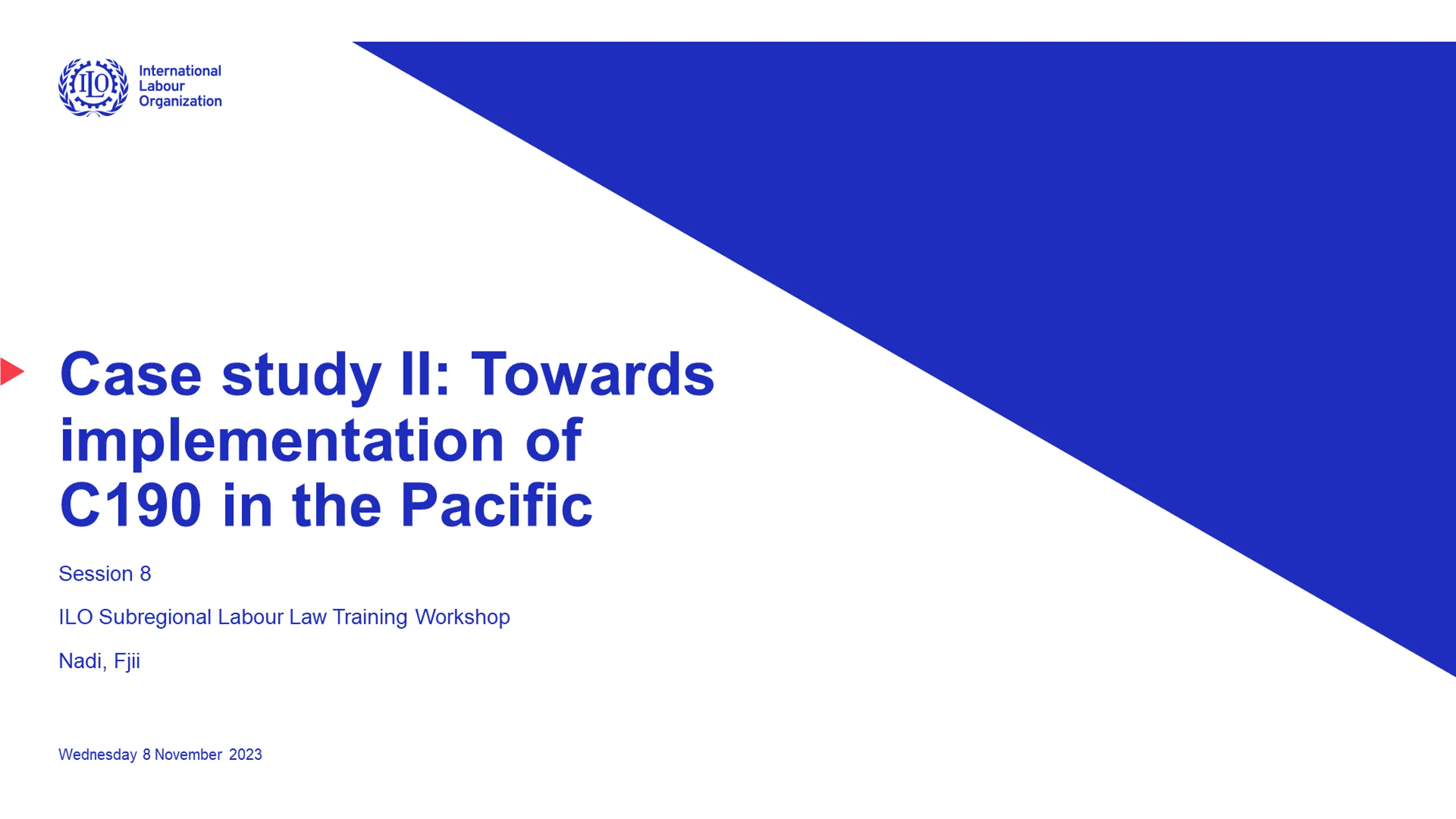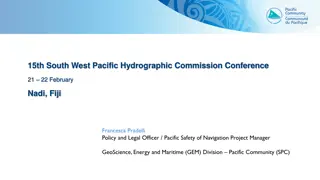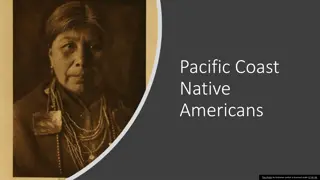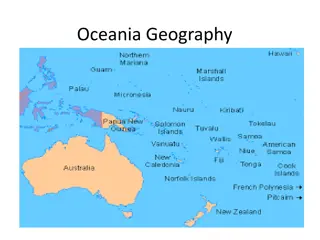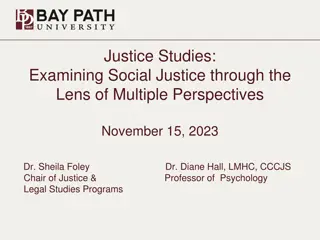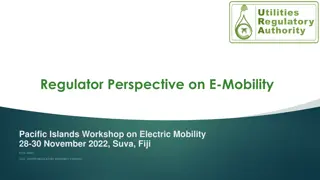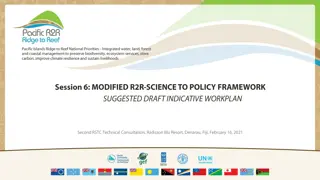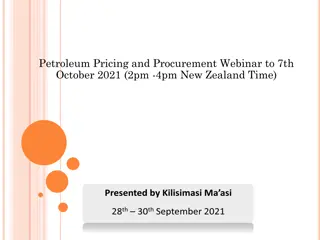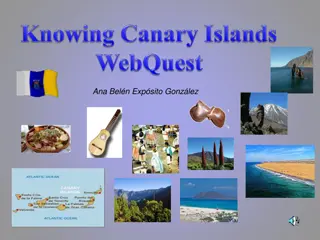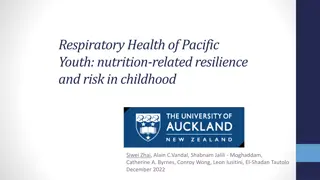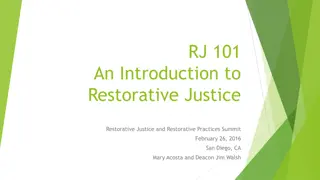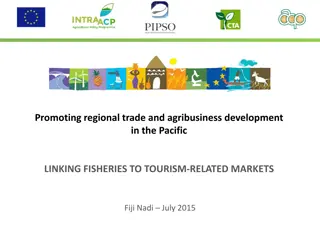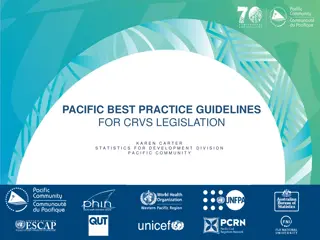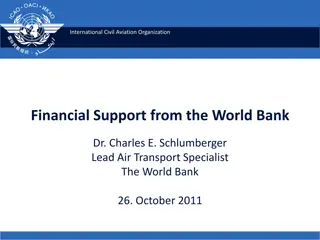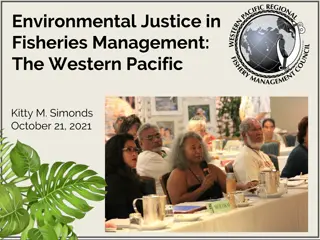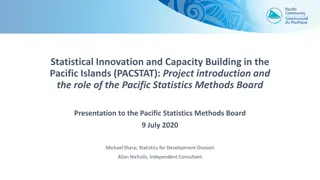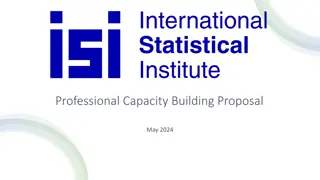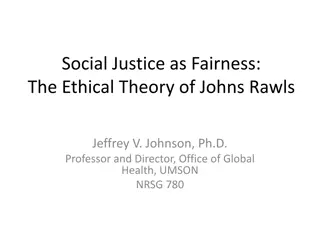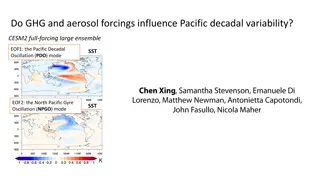Advancing Social Justice: C190 in the Pacific Islands
Explore challenges and progress of implementing Convention No. 190 on violence & harassment in the Pacific. Discussion on high rates of violence in workplaces, efforts for legal compliance, and need for implementing social justice. Participation encourages critical evaluation and reflection.
Download Presentation

Please find below an Image/Link to download the presentation.
The content on the website is provided AS IS for your information and personal use only. It may not be sold, licensed, or shared on other websites without obtaining consent from the author.If you encounter any issues during the download, it is possible that the publisher has removed the file from their server.
You are allowed to download the files provided on this website for personal or commercial use, subject to the condition that they are used lawfully. All files are the property of their respective owners.
The content on the website is provided AS IS for your information and personal use only. It may not be sold, licensed, or shared on other websites without obtaining consent from the author.
E N D
Presentation Transcript
Case study II: Towards implementation of C190 in the Pacific Session 8 ILO Subregional Labour Law Training Workshop Nadi, Fjii Wednesday 8 November 2023
2 Session Objectives To consider the challenges and opportunities that ratification and implementation of Convention No. 190 presents for Pacific Island countries To encourage participants to begin to apply their knowledge of Convention No. 190 to critically evaluate laws and practices in their own countries To provide an opportunity for participants to reflect and provide feedback on the 2-day workshop. Advancing social justice, promoting decent work
3 Violence and harassment in the world of work in the Pacific what do we know? Comprehensive statistics are unavailable. But the available evidence suggests high levels of violence and harassment in Pacific island countries. A 2016 study by The Fiji Women s Rights Movement revealed that out of one thousand women surveyed, 20 per cent had experienced sexual harassment in the workplace one in every five women. The sectors reporting the highest incidence of harassment were the tourism industry (accommodation, hotels, restaurants and bars), followed by the Public Service, Health, and Retail sectors. The Pacific has one of the world s highest rates of domestic and sexual violence, with the regional average of 2 in 3 women experiencing intimate partner violence across their lifetimes. Women in the informal sector are at increased risk of abuse and violence. A UN Women study in Port Moresby, Papua New Guinea, found that over half of women and girls experienced violence in marketplaces. At the same time, 22% of female vendors faced multiple instances of sexual violence within a year. Advancing social justice, promoting decent work
4 Violence and harassment in the world of work in the Pacific what do we know? A 2018 survey of employees in some of the Solomon Islands' largest companies found that one in three of surveyed employees experienced domestic or sexual violence in the 12 months preceding the survey. In two companies, the rate was even higher, with approx. half of employees reporting domestic or sexual violence in the preceding 12 months. Of those who reported experiencing domestic or sexual violence, 81 percent reported at least one workplace impact. This represents 35 percent or one in three of all employees who participated in the survey. Source: IFC 2019 Advancing social justice, promoting decent work
5 Progress is being made In recent years, across the Pacific Islands, Member States have made progress in improving laws and policies in addressing violence and harassment, particularly on sexual harassment Validation workshop on C190 legal report, Samoa (ILO 2020) Fiji has ratified Convention No. 190 and, with the assistance of the ILO, Samoa and Vanuatu have undertaken legal reviews to assess compliance of national legislation, policies and practice with the Convention. But many challenges in bringing national law and practice in Pacific Islands countries into compliance with Convention 190 remain. Advancing social justice, promoting decent work ILO Director-General Guy Ryder and Nazhat Shameem Khan (ILO 2020)
6 Watch: Fiji Women s Rights Movement (FWRM) s C190 Campaign video Advancing social justice, promoting decent work
7 Group activity A common first step in the process of bringing national laws and practices into compliance with an ILO convention is to conduct a legislative survey and gap analysis to determine the extent to which existing national laws, regulations, policies and other measures implement the requirements of the Convention. We are going to begin engaging in this process with respect to Convention No. 190. We are going to focus on assessing compliance with Article 1 of the Convention: defining violence and harassment and gender-based violence and harassment. You are asked to begin to: (i) identify laws and (if possible) provisions of national laws that are relevant to Article 1; and (ii) identify any gaps in national laws that would need to be addressed to achieve compliance with C190. Please see worksheet for additional details. Advancing social justice, promoting decent work
8 Defining violence and harassment at work Under Convention No. 190, States must adopt laws and regulations to define and prohibit violence and harassment, including gender-based violence and harassment (Art. 7). States can opt for a single concept or separate concepts in their definitions in national laws and regulations (Art. 1(2)) what is important is that all the elements of the definition provided by Convention No. 190 are respected. Advancing social justice, promoting decent work
9 In what type of statutes might we find relevant definitions and prohibitions? Constitutions Labour laws (including employment laws, labour relations laws, OHS laws) Laws regulating the public service Human rights laws Criminal laws Advancing social justice, promoting decent work
10 Example Q1. In Australia, the following Commonwealth legal instruments include definitions that are relevant to Article 1 of the Convention: Anti-discrimination statutes the Fair Work Act the Work Health and Safety Act the Criminal Code Act Q2. In general, it would appear from preliminary analysis that Australian laws cover everyone in the world of work. The most likely challenges for Australia with respect to compatibility of national law and practice with Convention 190 relate to (i) lack of comprehensive data on violence and harassment in the world of work; and (ii) the complexity of our laws (particularly potential for complexity and inconsistency in federal and state/ territory laws constituting a barrier to access to justice). Advancing social justice, promoting decent work
11 Group activity Working in groups, please discuss your answers to the following questions: Can you think of anything we covered in this workshop that you would like to learn more about? How will you apply the knowledge you have gained in this workshop? What needs to happen in order for you to apply this knowledge? Is there anything you hope will be different as a result? Advancing social justice, promoting decent work
Thank you Email: ingrid.landau@monash.edu LinkedIn: www.linkedin.com/in/ingridlandau
